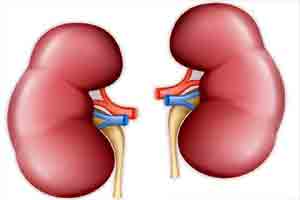- Home
- Editorial
- News
- Practice Guidelines
- Anesthesiology Guidelines
- Cancer Guidelines
- Cardiac Sciences Guidelines
- Critical Care Guidelines
- Dentistry Guidelines
- Dermatology Guidelines
- Diabetes and Endo Guidelines
- Diagnostics Guidelines
- ENT Guidelines
- Featured Practice Guidelines
- Gastroenterology Guidelines
- Geriatrics Guidelines
- Medicine Guidelines
- Nephrology Guidelines
- Neurosciences Guidelines
- Obs and Gynae Guidelines
- Ophthalmology Guidelines
- Orthopaedics Guidelines
- Paediatrics Guidelines
- Psychiatry Guidelines
- Pulmonology Guidelines
- Radiology Guidelines
- Surgery Guidelines
- Urology Guidelines
Kidneys innate clock affects bodys metabolic processes

Geneva : Kidneys have an internal clock which plays an important role in maintaining balance within the body, a new study has found.
Many of the body's processes follow a natural daily rhythm or circadian clock that is based on regular light-dark cycles as the Earth rotates.
Now, researchers have demonstrated that the kidney possesses such an intrinsic circadian clock that regulates and coordinates a variety of the organ's functions.
"Since urine formation and excretion by the kidney is one of the most easily detectable rhythmic processes (we are forming and excreting much more urine during the day), we hypothesised that at least a part of this rhythmicity is dependent on the circadian clock mechanism," said Natsuko Tokonami from University of Lausanne in Switzerland.
By blocking kidney cells' expression of a gene that is critically involved in the circadian clock system, researchers found that the clock is responsible for the temporal adaptation of kidney function to the light and dark phases of the day that correspond to activity and rest.
Such adaptations have an important effect on the levels of various amino acids, lipids, and other components of blood in the body, researchers said.
Furthermore, in individuals who take medications, the kidney's circadian clock controls the process of drug elimination from the body and therefore can influence the duration of a drug's action and the effectiveness of the therapy, they said.
"We have shown that the circadian clock in the kidney plays an important role in different metabolic and homeostatic processes at both the intra-renal and systemic levels and is involved in drug disposition," said Dmitri Firsov from University of Lausanne.
The findings were published in the Journal of the American Society of Nephrology (JASN).

Disclaimer: This site is primarily intended for healthcare professionals. Any content/information on this website does not replace the advice of medical and/or health professionals and should not be construed as medical/diagnostic advice/endorsement or prescription. Use of this site is subject to our terms of use, privacy policy, advertisement policy. © 2020 Minerva Medical Treatment Pvt Ltd